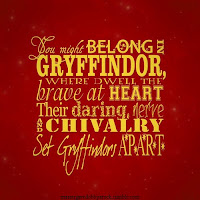My husband Rob and I are on parallel, but distinct, spiritual journeys. While I tend to yap on to him about this or that pagan practice, or my opinions on certain theological matters, he tends to think to himself and stay silent unless asked. I got him to grace us with his lovely presence, and share his thoughts about his non-pagan spiritual journey.
Q: Do you currently consider yourself of a specific religion? If so, what religion?
A: No, nothing specific. It's hard for me to be specific because there are too many grey areas in religion and faith, and most religions tend to always want to fill everything in with definite beliefs. The closest I come to anything in particular may be Unitarian Universalist because they don't tend to be very specific.
Q: What is your religion of origin(if you have one)?
A: I was raised Catholic. In my teen years I moved to various New Age spiritualities, then, unsatisfied by those, I became an atheist. More recently, I was a born-again Christian but have since left that faith for various reasons.
Q: How do you view God?
A: This is a hard questions to answer because my view of God is simultaneously both concrete and abstract, which is amazingly difficult to explain in words. Coming from a traditional Judeo-Christian background, I have found it difficult to not give God a personality. The problem is that I'm not convinced that the personality given to God in the Bible would be accurate. To me, that version is too human and that's understandable because humans wrote it and it's very difficult to attempt writing a personality outside of your own knowledge. And even if you could it would be so esoteric that no one would even attempt to follow such a God. So, I think that God has a conscious form, a thinking, knowing form, but I do not have the slightest clue what those thoughts may be, what knowledge may exist, or if my puny human brain could understand even a fraction of it. In a way, I assume that God has knowledge that I do not, and whatever that is, it probably knows that I don't know, and that that's probably OK.
On the other hand, I think that there is some portion of God (see question 6 about the "Multiverse" to better understand the "portion" part of this) that isn't sentient, that just exists in all places and in all things and isn't judging or even really caring about what we're doing, but that is with us in some way. There is the idea that if you try to connect with this bit of God, that you can feel it; if you can connect and you do feel it, that feeling is tantamount to knowing all of the answers, even if just for a moment.
Q: What things do you place the most emphasis on in your spiritual path?
A: Knowledge, or at the very least, the process of knowledge, is most important to me. I don't imagine I'll ever fully settle on answers to spiritual questions, but thinking about the spiritual is an exercise I find both frustrating and highly fulfilling. At various times I hit points of spiritual exploration that I would describe as having a profoundly calming effect on me, where things in the spiritual world make a degree of sense which seems to transcend the overall thought process. These moments are the ones that make it worth it.
Q: Is "belief" important to you? Explain.
A: I'm not sure, honestly. "Belief" tends to describe something very concrete, something that you can quickly describe or quantify, and I can't say that at this point in my spiritual journey that I have too many of those. The only one that I'm sure of is that there is something greater and more profound than myself. I guess I would say that this one belief that I do have is important to me.
I think that "faith" is more important than belief, however, and I would say that it is important to me. To some people, "faith" and "belief" are fully interchangeable, but to me they describe very different things. I think that "belief" is more thought-focused and that "faith" is more focused on feelings. To me, "faith" is actually kind of a vague proposition; it is one of the things that keeps me searching for answers, and maybe it's the thing that will move me towards definite beliefs. At the moment, I'd say I see "faith" as the feeling I get when I experience the spiritual.
Q: How do you view other faiths?
The way I think about various religions and faiths is similar to the concept of the "Multiverse," the hypothesis that there are many parallel universes all existing at the same time, and in some way existing in the same physical space. I would say that all religious beliefs are infinitely possible and also infinitely impossible, meaning that all beliefs have the same likelihood of being true as being false, and that there is even some likelihood of all being true or all being false.
So, given that, I think that all faiths inherently offer something of value and that I can learn something and grow from the knowledge of all faiths. And while I personally don't accept all of the doctrines of many faiths, I do respect them and I do think they are all valid, if not on a personal level.
Thanks so much to Rob for taking out the time to give us such thoughtful answers!































